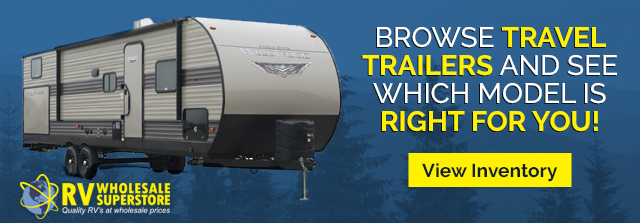Congratulations, you are a new RV owner! With a season full of excitement and travel plans, you may simply be storing your RV in your driveway between camping trips. It’s possible you haven’t give much thought to what you’ll do with your RV when the camping season is over and the snow starts to fly. However, RV storage is a big part of RV ownership, so it’s important to know some of the ins and outs of RV storage so you can make your post camping season plans.
Why You Should Care About RV Storage
Your RV is a big investment. Storing it properly will keep it protected from the elements as well as theft and damage. Properly stored RVs maintain their value much better than those left out to face Mother Nature unprotected.
Proper off-season RV storage can also reduce maintenance needs. For example, when tires are protected from UV damage while they are being stored, they will last longer and require less frequent repair or replacement.
During the colder months, RV storage helps prevent issues that may arise from improper or non-existent winterization. When the camping season kicks up again, the RVs that have benefitted from proper RV storage will be ready to hit the road.
Common RV Storage Locations
On Your Property
The most logical place for RV storage is on your own property. The question boils down to whether you have enough room or not. An ideal RV storage would be in a large barn, garage, or outbuilding if you have one. If not, RVs can be stored outside. When storing outdoors, it is a good idea to invest in an RV cover as well as wheel covers. If it is feasible, store along the east side your home or garage to protect it from the wind and weather as much as possible.
Rented Storage Unit
When you don’t have room on your own property, you can look into rental space for your RV storage. It is common for self-storage companies to offer storage for large RVs. There may be indoor, outdoor or even carport-type covered outdoor RV storage options depending on the company. You can choose the type of storage depending on what is available in your area and what fits your budget. No matter which kind of storage you decide upon, it can be a good way to protect your investment.
Should I Store My RV Inside or Outside?
Unless you already have a large enough facility on your own property to store your RV inside, cost is generally the determining factor. When it comes to RV storage, the biggest reason RV owners choose to store outdoors is to save on storage costs. While indoor RV storage offers more protection from the elements, it is still possible to protect your RV by parking it away from direct sunlight, using RV covers, and protecting the tires. Tires should be protected from direct contact with the ground as well as using covers to block sunlight. RV skirting is another layer of protection that can be utilized when it comes to outdoor RV storage.
Before You Put Your RV into Storage
There are several things you need to do prior to storing your RV for the winter. Just like pipes in your home can freeze and burst causing all kinds of trouble, water left in the plumbing lines in your RV can freeze when temperatures drop and cause them to burst, too. Your water tanks are also vulnerable, as well as the fittings. So you can see why one of the most important steps in winterizing for RV storage is bleeding the water lines and know how to winterize your RV before storing for the winter.
There are other important steps when winterizing your RV. You’ll want to clean out your RV before storage – especially any food items that may be left in cupboards! If you haven’t taken all food out of your RV and cleaned it well, any crumb you may leave behind is an invitation to uninvited guests! There are plenty of pests who would be more than willing to take up residence in your RV for the winter, so don’t leave any traces of food.
It’s also a good idea to follow safety precautions regarding batteries and propane when preparing for RV storage. These items are flammable and must be handled appropriately in order to avoid damages.
When warmer weather arrives, make sure you follow the steps to de-winterize after all those months of RV storage. Then you’ll be ready to head out for another season of fun, travel, and camping adventures.

Contact RV Wholesale Superstore
The professionals at RV Wholesale Superstore are ready to help you find the perfect RV for you and your family. Visit us in-person at 5080 W. Alexis Road, in Sylvania, OH or call us at (419) 786-1126
Connect with us on Social Media!

